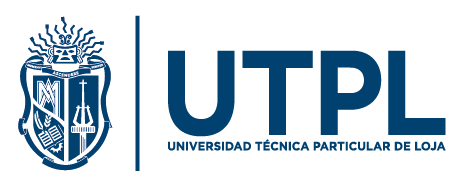Grounded theory based on experiences of university professors mainstreaming the culture of peace
DOI:
https://doi.org/10.58508/cultpaz.v6.136Keywords:
Culture of Peace; Mainstreaming; Grounded Theory; Higher EducationAbstract
Formal education acquires a great responsibility as an institution oriented to the formation of citizens committed to social transformation. In this sense, it is a necessity to rethink the forms of education, pedagogical methodologies, curricular contents, expected learning, and the curricular structure to orient it to an integral formation that favors the development of skills, attitudes, and knowledge that help to build a culture oriented to peace. The transformation of the curriculum in higher education has become an imperative need worldwide, becoming in turn a strategy to train professionals with a comprehensive education who have the theoretical and practical skills necessary to respond to the complexity of the social reality that surrounds us. Therefore, teachers speak from their daily teaching practice and present a series of experiences with the mainstreaming of the culture of peace from the classroom. From the grounded theory approach, constant comparison was used as the main method to identify theoretical categories. It was found that teachers transmit to their students the appropriation of the culture of peace that they experience in their professional and personal lives. It is necessary for each teacher in front of a group to recognize the importance of educating to build a culture of peace transform their teaching practice, and mainstream their school subjects by integrating the culture of peace.
Downloads
References
Abrego, M. (2010). La situación de la educación para la paz en México en la actualidad. Espacios Públicos, 13(27), 149-164. https://www.redalyc.org/pdf/676/67613199010.pdf
Aníbal, L. (2012). Los fines de la educación. Orbis. Revista científica Ciencias Humanas, vol. 8, núm. 23, pp. 4-50. https://www.redalyc.org/pdf/709/70925416001.pdf
Barnes, D.M. (1996). An analysis of the Grounded theory method and the concept of culture. Qualitative Health Research 6(3): 429-441. https://journals.sagepub.com/doi/10.1177/104973239600600309
Bastida, A. y Cascón, P. (1995). Educación para la paz. En El trabajo docente y psicopedagógico en Educación Secundaria. Aljibe.
Bisquerra, R. (2004). Metodología de la investigación educativa. La Muralla.
Cabello-Tijerina, P. y Vázquez-Gutiérrez, R. (2018). Cultura y Educación para la Paz. Una perspectiva Transversal. tirant.
Carrero, V., Soriano, R. y Trinidad, A. (2012) Teoría Fundamentada Grounded Theory. El desarrollo de teoría desde la generalización conceptual. Centro de Investigaciones Sociológicas.
Charmaz, K. (1990). “Discovering” chronic illness: using grounded theory. Social Science and Medicine, 30(11), 1161-1172. https://www.sciencedirect.com/science/article/abs/pii/027795369090256R
Cruz, N.y Rodney, Y. (2017). La formación de una cultura de paz en el proceso de enseñanza aprendizaje de la Educación Superior. VARONA, 64, 1-10. https://www.redalyc.org/pdf/3606/360657467013.pdf
Delors, J. (1996). La educación encierra un tesoro: compendio / informe a la Unesco de la Comisión Internacional sobre la Educación para el siglo XXI. Ediciones Unesco.
Díaz-Bravo, L. Torruco-García, U. Martínez-Hernández, M., Varela-Ruiz, M. (2013). La entrevista, recurso flexible y dinámico. Investigación en Educación Médica. 2(7), 162-167. https://www.redalyc.org/pdf/3497/349733228009.pdf
Escalante, P. (2010) La etapa indígena. En La educación en México. (Coord.) Tanck, D. El Colegio de México.
Ferrini, R. (1997). La transversalidad del curriculum. Revista Electrónica Sinéctica, 11, 1-9. https://www.redalyc.org/pdf/998/99826037002.pdf
Gimeno, J.; Fernández, M.; Torres, J.; Rodríguez, C.; González, M. y Pérez, J. (2010). Saberes e incertidumbres sobre el currículum. Morata.
Glaser, B. G. (1978). Advances in the Methodology of Grounded Theory. Theoretical Sensitivity. University of California.
González, F. (1994). Temas transversales y educación en valores. Anaya.
Namakforoosh, M. (2005). Metodología de la investigación. Limusa
Picón, G. y Frausto, M. (2022). Cultura de paz y transversalidad de una educación para la paz en el currículo universitario. Ciencia Latina Revista Multidisciplinar. 6(1), 4999-5022. https://ciencialatina.org/index.php/cienciala/article/view/1874
Sacristan, J. (1985). Teoría de la enseñanza y desarrollo del currículo. Anaya.
Sandoval F., E. A. (enero abril de 2012). Estudios para la Paz, la Interculturalidad y la Democracia. RaXimhai, 8(2), 17-37. https://www.redalyc.org/pdf/461/46123366002.pdf
Sandoval, C. A. (agosto de 1997). Investigación cualitativa. Programa de especialización en teoría, métodos y técnicas de investigación social. Medellín.
Strauss, A. (2004) Anselm Strauss en conversación con Heiner Legewie y Barbara Schervier-Legewie. Forum Qualitative Social Research, (on line journal) 5(3) Art. 22. http://www.qualitative-research.net/fqstexte/3-04/04-3-22b-s.htm
Strauss, A. y Corbin J. (2002) Bases de la investigación cualitativa. Técnicas y procedimientos para desarrollar la teoría fundamentada. Universidad de Antioquía.
Taba, H. (1974). Elaboración del currículo. Troquel.
Trinidad, A.; Carrero, V. y Soriano, R. (2006). Teoría Fundamentada “Grounded Theory”. La construcción de la teoría a través del análisis interpretacional. Cuadernos Metodológicos, 37. Centro de Investigaciones Sociológicas (CIS). https://www.uv.mx/mie/files/2012/10/LaConstrucciondelaTeoriadelAnalisiInterpretacional.pdf
Wells, K. (1995). The strategy of Grounded theory: Possibilities and problems. Social Work Research, 19(1), 33-37. https://pubmed.ncbi.nlm.nih.gov/10140997/
Downloads
Published
How to Cite
Issue
Section
License
Copyright (c) 2023 Juana Maurilia Ochoa Rocha

This work is licensed under a Creative Commons Attribution-NonCommercial-ShareAlike 4.0 International License.
Aquellos autores/as que tengan publicaciones con esta revista, aceptan los términos siguientes:
- Los autores/as conservarán sus derechos de autor y garantizarán a la revista el derecho de primera publicación de su obra, el cuál estará simultáneamente sujeto a la Licencia de reconocimiento de Creative Commons 4.0 BY-NC-SA que permite a terceros compartir la obra siempre que se indique su autor y su primera publicación esta revista.
- Los autores/as podrán adoptar otros acuerdos de licencia no exclusiva de distribución de la versión de la obra publicada (p. ej.: depositarla en un archivo telemático institucional o publicarla en un volumen monográfico) siempre que se indique la publicación inicial en esta revista.
- Se permite y recomienda a los autores/as difundir su obra a través de Internet (p. ej.: en archivos telemáticos institucionales o en su página web) antes y durante el proceso de envío, lo cual puede producir intercambios interesantes y aumentar las citas de la obra publicada. (Véase El efecto del acceso abierto).
-
Los autores han respetado la política de autoría de esta revista.






